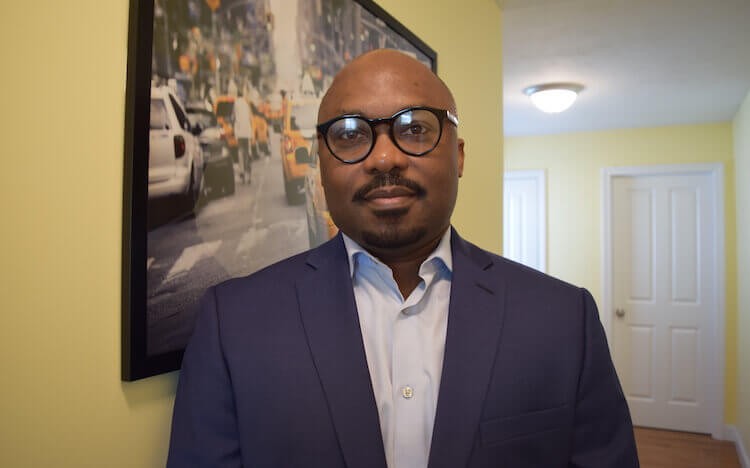It’s a long way from Nigeria to the United States—over 5,000 miles. But for Kayode Yusuf, moving stateside was simply the first step to advancing his career.
With his undergraduate degree in accountancy from the UK, Kayode worked for almost seven years as a manager for PwC, but knew that he needed to diversify his experience to qualify for more senior leadership roles.
“I wanted a one-year MBA from a top-rated school in the US,” Kayode says. “Hult International Business School stood out for me because of its diverse student body and accomplished faculty.”
96% of students at Hult change location, industry, or function after their MBA, benefiting from a 149% average increase in salary. “From day one, Hult’s focus was on getting students ready for the job market,” Kayode says.
An innovative MBA
The US has had a difficult few years as a study destination for international students—the Graduate Management Admission Council (GMAC) reported in April this year that the country has experienced a steady decline as a top study destination since 2009.
However, it is still the most popular destination for prospective graduate business students—two-in-three students plan to apply to a program in the US—and Kayode is certain that it was the best fit for him.
“The US was a good choice for me because of the reputation of its business schools and the exposure to top tier organizations,” he says. Hult was the first school in the US to receive prestigious triple-crown accreditation for its MBA program.
But it was Hult’s focus on student job prospects and practical, hands-on learning that made the school Kayode’s go-to choice—as well as its lucrative choice of campuses.
“Hult is known for its experiential approach to learning and global vision for business,” Kayode asserts. “And being at the Hult Boston campus gave me the opportunity to live and study in a city that is known for innovation and ideas.”
At Hult, students are required to take part in an Action Learning Project as part of their MBA, where students must provide “a real world organization with practical solutions to existing problems,” Kayode explains. As part of this project, Kayode worked on a challenge sponsored by the Woods Hole Oceanographic Institution (WHOI), helping to develop a growth and innovation plan.
“This project was definitely one of my personal highlights,” he adds. “Interacting with the top leadership of the organization allowed me showcase my hands-on management skills, and I also learned a lot from interacting with other MBA students from across the globe.
The value of an MBA
Since graduating from Hult, Kayode has seen first hand the benefits of having an MBA degree.
“My MBA definitely helped me to find a job in the US,” he says.
“The MBA credential is a demonstration of my ability to take on top business management roles and it still helps me now.
“At PwC, I am responsible for driving profitability initiatives to help the firm make better margins. My MBA helps me to logically think through complex business problems and proffer solutions.”
Coming from an accounting background, Kayode says doing an MBA can help other people in a similar position who are looking to make the jump to management.
“Accountants should consider doing an MBA if they are aspiring to broaden their business knowledge and take on top jobs in the business world,” he explains.
“Thanks to my MBA from Hult, I have expanded my knowledge in other spheres of business such as marketing, operations and strategy. In the end, I feel that I’m a more rounded business professional.”






